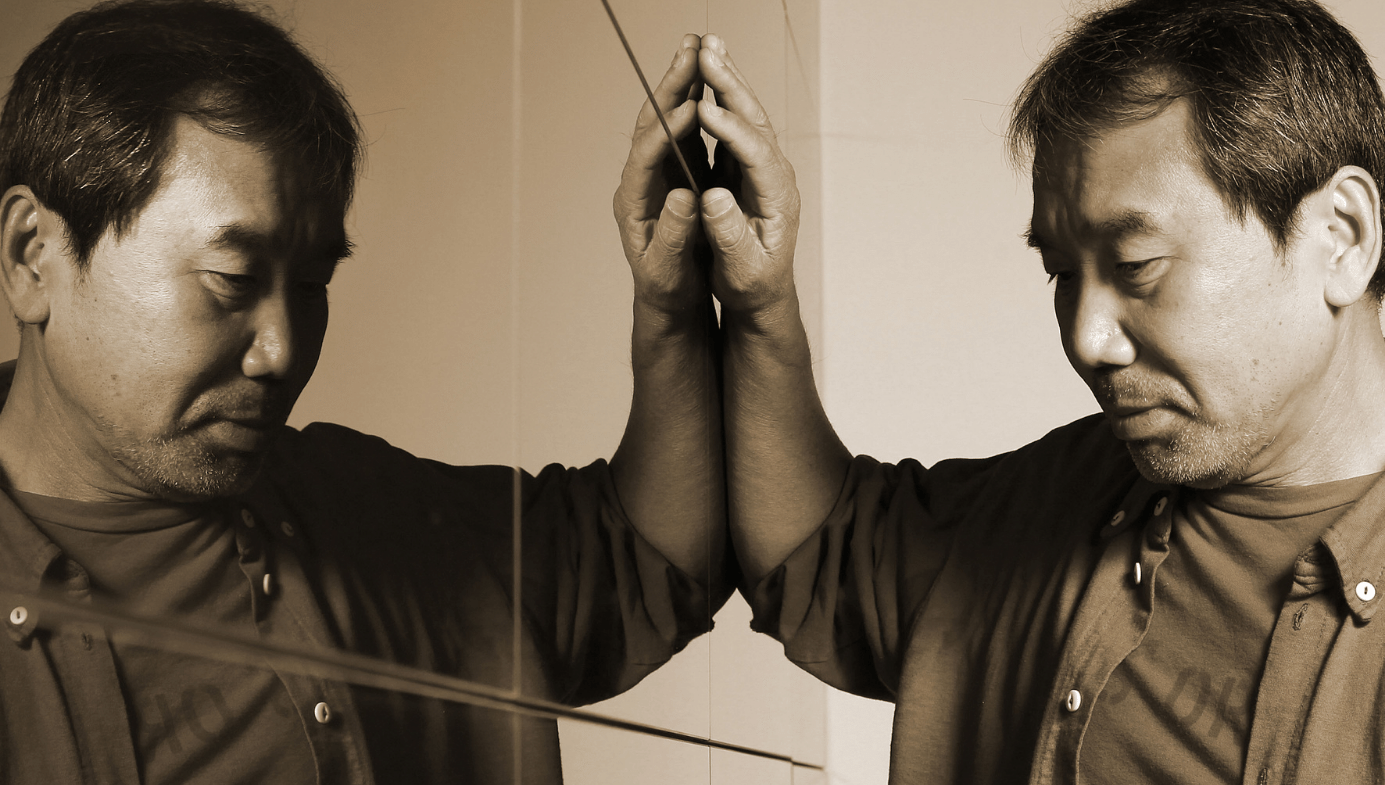Art and Culture
Murakami On Writing
In his new book, Murakami attempts to set the limits of what he wants people to know about him—and that isn’t much.

A review of Novelist as a Vocation by Haruki Murakami, 224 pages, Penguin (November 2022)
This month has brought the long-awaited release of Haruki Murakami’s latest book, Novelist as a Vocation, first published in his native Japan seven years ago. It is a collection of essays written between 2010 and 2015 that blur the line between career advice and autobiography, not unlike Stephen King’s now-classic On Writing: A Memoir of the Craft. However, unlike King’s book, Murakami’s is frustratingly evasive. One of the hallmarks of his writing, whether fiction or non-fiction, is that it appears to be frank when in fact it is revealing very little. In that respect (and others), Murakami is rather like Bob Dylan, who rarely gives an interviewer a straight answer and whose work and personality remain opaque enough to have resulted in the creation of “Dylanology.”
In much the same way, Murakami’s fans pore over his work in search of meaning, while skeptical critics have concluded that there is none to be found. The late Masao Miyoshi remarked that Murakami’s fiction was little more than “a symbol-deciphering game.” Indeed, you are about as likely to make sense of Kafka on the Shore as you are to make sense of ‘Desolation Row.’ And like Dylan, Murakami either offers contradictory explanations or avoids them altogether. We know little about his life, and what we do know has largely been the narrative provided by the author himself, carefully crafted to cement his mysterious allure.
Murakami is now in his 70s, but anyone who expected that he might have dropped his guard a little is going to be disappointed, despite the book’s apparently autobiographical subject matter. The essays share his collected wisdom on writing by combining his advice on certain topics (literary prizes, character creation, education, etc.) with his own personal experiences, but he gives little away. “I imagine this book will be taken as autobiographical essays, but they weren’t originally written with that in mind,” he informs us at the start. As with so much that Murakami says, this is rather hard to believe.
Each essay deals with a period in his own life, so the book does feel like a loose autobiography. We learn about the author and his journey from uninterested student to jazz-bar owner to bestselling novelist, whose work has been translated into more than 50 languages. Despite his success, he remains painfully self-effacing, telling us that he is “ordinary” and unintelligent, and he often seems to be baffled (and even troubled) by what he has achieved. From a biographical standpoint, however, there is nothing new here. In fact, the book is notably bereft of personal detail and it is filled, instead, with already well-established moments from his life—a handful of stories he has rehashed endlessly in interviews and essays, perhaps hoping to deflect any meaningful inquiry into his life.
The focus, then, is not the author but his readers, who Murakami assumes have some intention of becoming writers. Consequently, each chapter is a long and somewhat rambling piece of advice, written to sound like informal speech rather than an essay. The narrative flows in the manner of his novels, which are usually written in the first-person by protagonists who sound and act just like Murakami. The essays offer a witty, charming, and informative insight into his profession, and their author is at pains to stress that these are simply his own thoughts and experiences and that he is not really giving advice at all:
Truthfully, I have no idea if this book could serve as a guidebook or introduction to help those hoping to write novels. What I mean is, I’m the kind of person with a very individual way of thinking, and I don’t know how far you can generalize about or apply my way of writing and living.
He opens the book with a chapter titled “Are Novelists Broad-minded?” It could just as easily have been titled “Anyone Can Do What I Do.” In his almost embarrassingly modest way, he tells us that he is not intelligent, but if you are smart, novels are not a good way of expressing yourself anyway. He seems to want his readers to feel that they, too, could become novelists, no matter who they are. “The thing that makes novels different [from other forms of art and writing] is that practically anybody can write one if they put their mind to it.”
With that out of the way, Murakami recounts how he got his start as an author—a story with which his fans will already be familiar, since it is included in almost any book or essay about him, and he trots it out in each of the rare interviews he gives. The idea of writing a novel apparently came to him during a baseball game. And so, he went home and wrote Hear the Wind Sing. In an effort to find his own literary voice, he wrote it in very basic English, and then “transplanted” it back into Japanese, thereby creating his trademark style—a readable, modern Japanese prose that lends itself to translation. It was not, he warns, a great novel. In fact, his first two books were so poor in his own estimation that he has tried (unsuccessfully) to dissuade people from reading them. It was only with his third novel, A Wild Sheep Chase, that he gained the skills necessary to write something of which he could be proud, and he has attempted to develop and improve them in each of his subsequent books.
This is his origin story, or at least, it is the image of himself that he wants to present to the world. However, this account omits some important details. For example, that his parents taught him the Japanese literary classics so well that he could recite many of the stories by heart. Or that his first few novels were rather transparent attempts at dealing with the suicide of a former lover. It is understandable that he might wish to hide certain painful episodes in his past. But when producing a guide for aspiring writers, it seems somewhat dishonest to leave that sort of thing out. He also ignores the fact that, for him, writing was largely a “self-healing process.”
From his discussions with Hayao Kawai and various other interviews, not to mention readings of his texts and criticism by various scholars, we know that Murakami finds writing therapeutic—a means of dealing with psychological, societal, and intergenerational trauma. To begin with, he wrote to heal himself, and later he wrote to heal others, particularly his fellow Japanese in the wake of the 1995 Kobe earthquake and the Aum Shinrikyo terrorist attack the same year. Perhaps that is not in keeping with the light tone and motivational aim of this particular book, but for whatever reason, he overlooks all this and instead repeatedly insists that he just loves writing—it is, he enthuses, “pure bliss.” Over and over, he describes the process of producing each story and novel as a wondrous, mysterious, and ultimately pleasurable experience:
One rule of thumb is to ask yourself, “Am I having a good time doing this?” If you’re not enjoying yourself when you’re engaged in what seems important to you, if you can’t find spontaneous pleasure and joy in it, if your heart doesn’t leap with excitement, then there’s likely something wrong. When that happens, you have to go back to the beginning and start discarding any extraneous parts or unnatural elements.
Murakami seems to have as much fun writing his books as his fans do reading them. Every day, he wakes from a dreamless sleep, before re-entering his unconscious to retrieve its stories, the twists and turns of which are as unexpected to him as they are to us. His characters, once fleshed out as real people, then begin to guide him through his famously dreamlike narratives. As to the densely cryptic symbols that litter his books, he says he has absolutely no idea what they mean, and enjoys trying to figure them out just as much as we do.
Writing, though, is physically and mentally taxing, and so Murakami maintains a strict routine in order to stay physically healthy. He is an avid runner and enjoys swimming. He runs a marathon each year and has completed one ultramarathon. This, he tells us, is crucial for coping with the long hours spent at his desk, and for dealing with the process of exploring his own unconscious and returning to the real world with what he has uncovered. Although he hardly touches on it in this book, elsewhere he talks at length of this dangerous place—a mixture of the individual and collective unconscious—and hints that it is possible to get lost there. (This is the subject of Matthew Carl Strecher’s excellent study, The Forbidden Worlds of Haruki Murakami.)
It is not only interior struggles that an author must contend with, but exterior ones, and in conservative Japan, that means contending with the inflexible literary establishment. Despite being modest and mild-mannered, Murakami is fiercely anti-establishment. In the late-’60s, he fought hand-to-hand with the police (another biographical point left unmentioned here) and has very little patience for the Japanese media, government, or academy. For many years, he escaped his homeland to revel in the comparative freedom of Europe and North America.
Ever since his first novel was published in 1979, he has drawn the ire of the establishment, and he has always refused to engage with them. His advice for young writers is to do the same. They should forget about awards and book sales, ignore their critics, and simply write what they want to write. If that means they are criticised, then so be it: “Better to evoke a strong response, even a negative one, than to elicit nothing but humdrum comments and lukewarm praise.” “What I wish to emphasize above all,” he writes, “is that a writer’s own individual qualities are their most important possession.”
Perhaps the best chapter of this book is devoted to a discussion of originality and how to pursue it. “Originality is hard to define in words,” he explains, “but it is possible to describe and reproduce the emotional state it evokes.” A great lover of music, he offers the example of the Beatles and the Beach Boys, reflecting on the excitement he experienced when he first heard their songs on the radio. He then moves on to van Gogh, Dali, Hemingway, and Sōseki. True originals, he reminds us, are mocked and misunderstood at first, then later emulated so widely that it can be hard to grasp just how innovative they once were.
But how does one become original? “It is my belief,” he says, “that a rich, spontaneous joy lies at the root of all creative expression.” He began writing a novel entirely on his own initiative, with no intention of publishing it. He wrote each subsequent book and story whenever he felt like it. He claims never to have faced a deadline or agreed to write something for a publisher. This, he believes, is why he has never encountered any form of writer’s block. When he doesn’t feel like writing, he doesn’t force himself and works as a translator instead, bringing his favourite American authors to a new Japanese audience.
As far as advice goes, this is clearly unrealistic because few young writers today enjoy that kind of creative freedom, and in any case, the Western literary landscape is rather different from that of Japan. More practical guidance can be found in other chapters, where he advises his reader to be observant and note down “striking” details about the things they see in daily life. (Murakami claims not to use a notepad for this; he simply remembers everything.) A novelist’s job is not to analyse or explain, he tells us, but simply to observe and recount interesting things. A novel, he says, is like the machine ET builds to “phone home”—“The key component is not the quality of the materials—what’s needed is magic.”
Thankfully, we need not rely on that alone. Dedication is also important. Murakami spends five or six hours writing every day, and during that time, he produces exactly 10 pages. Once he has reached his limit for the day, he stops, no matter how much he wants to continue. We learn specific details about page counts, types of paper, places for writing, and the amount of time spent at the typewriter. He tells us how to improve consistently, learning from our weaknesses. “[N]o matter what you have written,” he says, “it can be made better.” He emphasises spontaneity, but he also recommends careful rewriting in order to bring some order to the chaos of stories pulled from deep inside the unconscious mind. Perhaps the most important piece of advice on offer is that, while natural talent may exist, it needs to be uncovered through persistence and hard work.
All of which might sound fairly wholesome, but Murakami repeatedly reminds us of his low-key contrarianism. He seems to be almost embarrassed by it, but the regularity with which he mentions it leaves the impression that he is actually proud of it. In a chapter about schools, he says he despises them and finds them utterly at odds with the creative personality: “People who absolutely love school, and feel sad when they can’t go, probably won’t become novelists,” he declares. During his own school days, he got poor grades, preferring to spend his time reading novels, playing mahjong, and dating girls. He ties the rigidity of Japanese education to the inflexibility of “the system” in post-war Japan. Details are, again, sparse on this point, but in his other books and interviews, he has a tendency to become uncharacteristically vitriolic when talking about the establishment. The “everyday corporate violence” of living in a conformist society, he says, produces a kind of existential agony. Here, he mostly talks about the 2011 Fukushima disaster, and unconvincingly tries to tie it to Japan’s educational flaws.
We learn from this book that it took Murakami 20 years of writing in the first person to develop the skill and confidence to switch to a third-person viewpoint. He stresses the value of slow, methodical progress. He also begins to address an area of real interest, which is his use (or lack) of names for characters. Frustratingly, though, he is as evasive here as he is with biographical detail: “[F]or a long time I couldn’t give names to my characters. … Why not? I don’t know the answer.” It is a familiar refrain.
While he has some interesting advice on the creation of characters, he has little to say about how his own came into being. He advises his reader to observe others and borrow traits from real people. He cites some of his favourite writers and mentions their ability to craft three-dimensional secondary characters. He teases us by admitting to inserting himself into a character or splitting his personality between multiple people, but that’s all. As with so many other parts of this book, he approaches a topic of personal significance but then backs away. He does it so casually that you hardly notice the evasion.
If you want a fuller exploration of these issues, you’ll have to seek out the growing volume of criticism and commentary on Murakami’s work. If you speak Japanese, you’ll find thousands of works. In English, there are a few dozen. Having read most of these, I felt a little let down by the lack of depth in this book. But perhaps I was just hoping for too much. This is Murakami attempting to set the limits of what he wants people to know about him, and that isn’t much. I felt the same way watching Dylan appear to speak candidly in Martin Scorsese’s Rolling Thunder Revue documentary. For the first few minutes, it sounds like Dylan is saying something interesting, but then you realise that it is just another layer of costume and that the documentary itself is a kind of facade. By taking off one mask only to reveal another, Murakami and Dylan are simply telling us that we will never see the true face.
Nevertheless, Murakami is one of the world’s most successful and influential living authors, and aspiring writers unfamiliar with his backstory may benefit from some of the practical advice included in this volume. And if he holds back more than he opens up, his enthusiasm still offers a useful counterpoint to the examples set by more self-destructive novelists. Perhaps his best advice comes midway through the book: “I think the first task for the aspiring novelist is to read tons of novels.” Indeed, though there is much to learn from Novelist as a Vocation, there’s more to be learned by simply reading the 14 novels Murakami has published to date.





